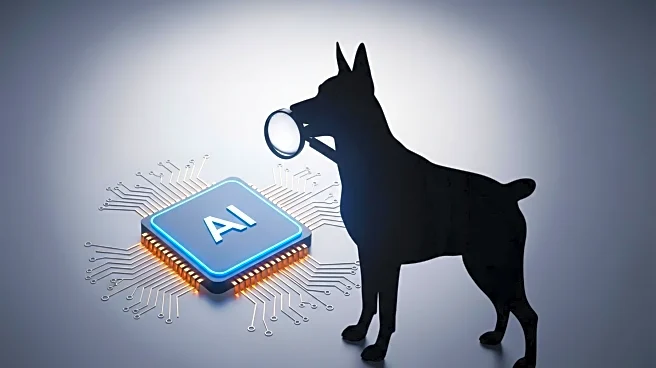What is the story about?
What's Happening?
SpotitEarly, a biotech company, is pioneering a novel approach to cancer screening by combining the olfactory skills of dogs with artificial intelligence. The company has developed a test that analyzes breath samples to detect cancer, leveraging the ability of trained dogs to identify disease-specific odors. This method has shown promising results, with a 94% accuracy rate in detecting early-stage cancer in a clinical trial involving 1,400 participants. SpotitEarly plans to make its at-home screening kits available through a network of physicians by next year, offering a more affordable option compared to existing tests like Grail's Galleri.
Why It's Important?
Early detection of cancer is critical for effective treatment and improved survival rates. SpotitEarly's innovative approach could revolutionize cancer screening by providing a cost-effective and accessible method for early detection. The use of dogs and AI in this process highlights the potential for interdisciplinary collaboration in healthcare, combining biological insights with technological advancements. This could lead to more widespread adoption of early detection methods, ultimately reducing the burden of cancer on healthcare systems and improving patient outcomes.
What's Next?
SpotitEarly is preparing to launch its screening kits in the U.S. market, backed by significant funding to expand clinical studies. The company plans to start with breast cancer screening and gradually include other types of cancer. As the technology gains traction, it may prompt further research into the use of animal olfactory skills in medical diagnostics, potentially opening new avenues for non-invasive disease detection.
Beyond the Headlines
The integration of animals in medical diagnostics raises ethical considerations regarding their treatment and welfare. SpotitEarly emphasizes the importance of ensuring the well-being of their canine partners, highlighting the need for ethical standards in the use of animals for scientific purposes. Additionally, the reliance on AI for corroborating findings underscores the growing role of technology in healthcare, prompting discussions about data privacy and the accuracy of AI-driven diagnostics.
















